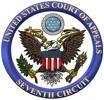Parlow and Pilon Rumble in Room 325
Yeah, that doesn’t quite recall the Ali-Foreman fight, but there was still a pretty good conversation between Dr. Roger Pilon and our own Professor Matt Parlow yesterday. Dr. Pilon argued that public sector affirmative action encroached upon libertarian principles (he does not believe that such efforts should be prohibited in the private sector) and the idea of equal protection. Professor Parlow argued for such efforts, emphasizing the need, not only for diversity but, as the Supreme Court has not allowed, to ameliorate the impact of past discrimination. Thanks are in order to the Federalist Society and American Constitution Society for sponsoring the event.


